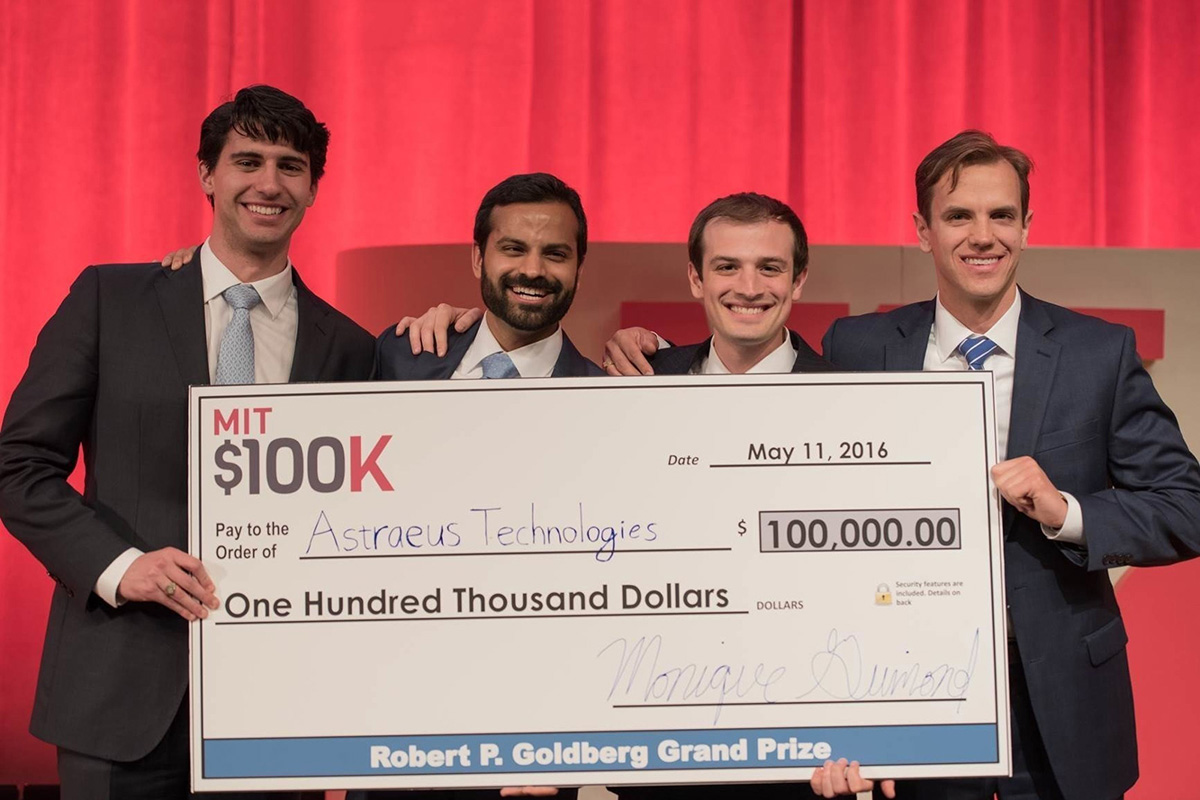MIT and Harvard Students Developed a Lung Cancer Breathalyzer

Photo by Michael Last
Thanks to Astraeus Technologies, diagnosing lung cancer could someday be as easy as breathing.
That’s not an exaggeration. Astraeus’ product, L CARD, works like a breathalyzer—except instead of testing for alcohol, it detects gases characteristic of lung cancer. If those gases are present when the patient exhales, a connected app makes a smartphone screen glow red; if they’re not there, the screen glows green.
L CARD, developed by MIT and Harvard students, could be especially impactful because lung cancer screening currently relies on expensive low-dose CT scans, which also expose patients to radiation and frequent false positives. The National Lung Screening Trial even found that an incredible 96.4 percent of positive CT scans do not lead to cancer diagnoses.
“Part of the reason lung cancer is so deadly is that the current gold standard screening test—the low-dose CT scan—is wholly inadequate in a variety of ways,” Astraeus’ Graham Lieberman, a Harvard Business School student, told MIT News. “A cheaper, safer screening device can be applied to a much larger percentage of [the] population.”
Astraeus recently won $100,000 from MIT’s Entrepreneurship Competition, and it’ll use that money for product development and initial clinical trials. It’s hard to say when L CARD will be available for clinical use, but Astraeus hopes to eventually sell the product directly to hospitals.


